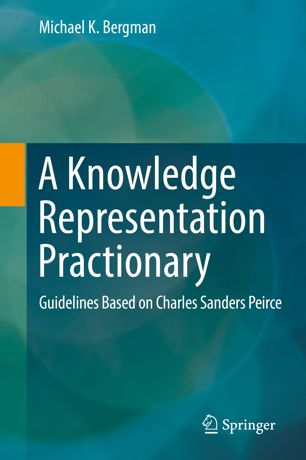

Most ebook files are in PDF format, so you can easily read them using various software such as Foxit Reader or directly on the Google Chrome browser.
Some ebook files are released by publishers in other formats such as .awz, .mobi, .epub, .fb2, etc. You may need to install specific software to read these formats on mobile/PC, such as Calibre.
Please read the tutorial at this link: https://ebookbell.com/faq
We offer FREE conversion to the popular formats you request; however, this may take some time. Therefore, right after payment, please email us, and we will try to provide the service as quickly as possible.
For some exceptional file formats or broken links (if any), please refrain from opening any disputes. Instead, email us first, and we will try to assist within a maximum of 6 hours.
EbookBell Team

4.8
54 reviewsThis major work on knowledge representation is based on the writings of Charles S. Peirce, a logician, scientist, and philosopher of the first rank at the beginning of the 20th century. This book follows Peirce's practical guidelines and universal categories in a structured approach to knowledge representation that captures differences in events, entities, relations, attributes, types, and concepts. Besides the ability to capture meaning and context, the Peircean approach is also well-suited to machine learning and knowledge-based artificial intelligence. Peirce is a founder of pragmatism, the uniquely American philosophy.
Knowledge representation is shorthand for how to represent human symbolic information and knowledge to computers to solve complex questions. KR applications range from semantic technologies and knowledge management and machine learning to information integration, data interoperability, and natural language understanding. Knowledge representation is an essential foundation for knowledge-based AI.
This book is structured into five parts. The first and last parts are bookends that first set the context and background and conclude with practical applications. The three main parts that are the meat of the approach first address the terminologies and grammar of knowledge representation, then building blocks for KR systems, and then design, build, test, and best practices in putting a system together. Throughout, the book refers to and leverages the open source KBpedia knowledge graph and its public knowledge bases, including Wikipedia and Wikidata. KBpedia is a ready baseline for users to bridge from and expand for their own domain needs and applications. It is built from the ground up to reflect Peircean principles.
This book is one of timeless, practical guidelines for how to think about KR and to design knowledge management (KM) systems. The book is grounded bedrock for enterprise information and knowledge managers who are contemplating a new knowledge initiative.
This book is an essential addition to theory and practice for KR and semantic technology and AI researchers and practitioners, who will benefit from Peirce's profound understanding of meaning and context.